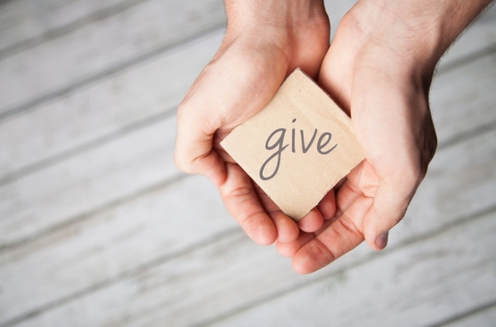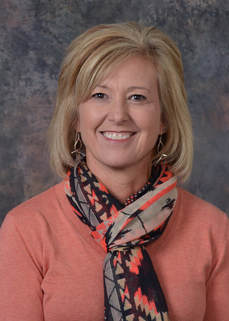 Today’s disabilities are different from what once were. Children with autism, school-age children and young adults with invisible, social, education and emotional challenges, or adults who need durable medical equipment are some of those living, working, playing and learning with disabilities. A staggering 1 in 5 people face a disability in America today. It is our mission and purpose at Easterseals of Northeast Central Florida to change the way the world defines and views disabilities by making profound, positive differences in people’s lives every day. YOU are a valuable part of that mission. Easterseals stands for all possibilities and limitless possibilities. Will you join us in this commitment in 2018? Your gift supports autism diagnosis, early intervention, early childhood education and much more for our most financially vulnerable families. Your gift can directly impact individuals. Here are some examples:
Easterseals of Northeast Central Florida is a qualified charitable organization, and your gifts are tax deductible. For your records and in appreciation, we acknowledge in writing your gift of any amount. Thank you for considering giving to Easterseals of Northeast Central Florida by December 31. You may give online here, or mail your contribution to Easterseals Northeast Central Florida, Attn: Susan Moor, Vice President – Gift Planning, 1219 Dunn Ave., Daytona Beach, FL, 32114. Or, contact Susan to discuss additional giving opportunities at 386-944-7820 or [email protected]. Thank you from all of us at Easterseals! We are proud to be “Taking on Disabilities Together”…with YOU!  The National Alliance for Caregiving reports that more than 43 million caregivers in the United States provide unpaid care to an adult or child annually. And, according to the National Respite Coalition Task Force, family caregivers are more than twice as likely than non-caregivers to report "usually or always" feeling stressed. If you’re a caregiver, maybe it’s time you took a healthy break. Easterseals of Northeast Central Florida wants to give you that gift of time. Joey’s Gift Respite, an Easterseals program, is designed to care for your child with special needs between the ages of 1-18. Joey’s Gift Respite offers four-hour breaks on designated Saturdays from 10 a.m. to 2 p.m. The next session will be Saturday, January 19, at the Easterseals Child Development Center, 1219 Dunn Ave. in Daytona Beach. Trained staff and volunteers care for children in a safe and fun environment. Siblings are welcome, too. Plan to pack a lunch for all children attending, and if needed, include personal hygiene supplies or medications. Complete the enrollment form for Joey’s Gift Respite if it’s your first time attending. All caregivers must sign up online in advance or call Easterseals at 386-944-7816 at least five days before the scheduled program. Take a break, with confidence, with support from Joey’s Gift Respite. Take time to take care of you.  Sickle Cell Disease affects one of every 500 African-American births and about one out of every 36,000 Hispanic-American births. Sickle Cell Disease affects one of every 500 African-American births and about one out of every 36,000 Hispanic-American births. Just last month, researchers published a study in the Pediatric Blood & Cancer academic journal about children’s perceptions of others’ understanding of their disability: Sickle Cell Disease. Among the findings, children with Sickle Cell Disease voiced concerns that their school teachers and administrators didn’t understand the disease very well and suggested the adults in their lives and had much room for improvement. Like any disability, Sickle Cell Disease is better understood with education. And, with that education comes empowerment. Sickle Cell Disease and Sickle Cell Trait are genetically inherited conditions that are passed down from parent to child. Sickle Cell Disease affects one of every 500 African-American births and about one out of every 36,000 Hispanic-American births. Individuals with Sickle Cell Disease are susceptible to complications such as a crisis (pain that can begin suddenly and last several hours to several days), infection, eye disease and/or stroke. Easterseals of Northeast Central Florida’s Sickle Cell Program provides case management services and education for residents of any age who have this form of anemia; residents who may be at risk for Sickle Cell Trait in Volusia County; or those who live, work or play with individuals with Sickle Cell. Easterseals offers residents and those diagnosed with Sickle Cell Disease educational sessions through its Sickle Cell Program to help them understand the implications of Sickle Cell Trait and how it may impact lifelong health and well-being. Individual case management, provided by a registered nurse, works to increase an individual’s (or their parent’s) understanding of the disease, too. This understanding leads to a healthier life and improved self-care. Community groups, health fairs, schools and other interested organizations are invited to receive Easterseals’ educational information about the Sickle Cell Program, which can include materials and/or presentations. Erika Wynn, a 2019 Honorary Ambassador with Easterseals’ Walk With Me spring fundraiser, is a local Sickle Cell Disease advocate who is actively involved in Easterseals’ Sickle Cell Program. Her experience with Sickle Cell has been supported by the Sickle Cell Program since she was a child. “Sickle Cell has been an experience, and sometimes it becomes a big fear in my life, but this support group is here to help us understand each other’s situations,” said Erika. “Every case of Sickle Cell is not the same…and having Sickle Cell is not about being sick. It’s about knowing how to deal with things. Said Erika: “I don’t want people’s sympathy, I just want them to understand.” To learn more about Easterseals of North Central Florida’s Sickle Cell Program case management or educational offerings, call 386-589-3892 or read more about them online.  Toys can be fun and educational for children with autism spectrum disorder. Here are a few winners we love! Toys can be fun and educational for children with autism spectrum disorder. Here are a few winners we love! It’s the most wonderful time! Twinkle lights are strung, cookies are baking, and holiday song are on repeat. It’s also time to shop for the prefect gifts for young and old. Often, special considerations can and should be made when gift-giving to children with autism spectrum disorder. What toys will stimulate without overwhelming? Which toys are simultaneously fun and educational? What toys can parents feel good about giving? Shoppers have many options, but they’re not all equal. So, we put together a list of some of the most popular educational, calming, and sensory gifts that children with autism spectrum disorder will enjoy…as will every young one on your list! For ages 0-4 Simple First Words: Let’s Talk (Priddy Books) By pressing the buttons and matchings the sounds to the pictures again and again, children will enjoy learning simple first words and developing their speech with this interactive book. Sound Puzzles (Melissa & Doug) Match the puzzle piece on the puzzle board and your child’s favorite pet will “speak” with a meow, woof, or tweet! With seven different themes, there’s bound to be one to match your child’s interests while encouraging problem-solving and independent play. Wiggly Giggly Ball Your child will be rewarded with a giggle every time they move or shake it! With bright colors and indentations to make grasping easier, the Wiggly Giggle Ball encourages gross motor movement while reinforcing cause-and-effect and hand-eye coordination. Your child will be rewarded with a giggle every time they move or shake it! With bright colors and indentations to make grasping easier, the Wiggly Giggle Ball encourages gross motor movement while reinforcing cause-and-effect and hand-eye coordination. For children ages 4-8 Jumpsmart Trampoline (Diggin Active) For kids who enjoy physical activity or need to work on their balance, an indoor trampoline is an excellent option. The Jumpsmart Trampoline’s fun learning games and silly songs will keep them active and learning all day long. LEGO® Blocks One of the most popular toys among children, LEGO® blocks not only encourage creativity and imagination, they assist in the development of fine motor skills, cognitive skills, and sensorimotor skills. LEGO® blocks are available in a variety of sizes appropriate for all developmental ranges. Give a Flip (Fun and Function) Stomp and catch! Physical play can help improve hand-eye coordination while working off excess energy. With Give a Flip, your child places a beanbag on one end, stomps their foot on the other end, and catches the beanbag in the air. This coordination game is perfect for encouraging visual tracking, motor planning, and persistence. For ages 8–12 Weighted Blanket Weighted items make great gifts. Whether you choose a weighted blanket or even a weighted stuffed animal, these items offer deep pressure therapy—helping calm down the nervous system and reducing anxiety. While they tend to be on the more expensive side, they are designed to hold up to years of use. (If choosing a weighted blanket, you’ll want to get one that is 10 percent of the child’s body weight, plus a pound or two.) Socially Speaking Board Game (Didax Educational Resources) Children with autism spectrum disorder can find it difficult to interact with others. Teaching basic skills like listening, greeting someone, and giving a compliment, this game provides a way to practice social interactions in a fun format. Glittering Vortex Lamp Similar to a traditional lava lamp, sparkly glitter swirls around as the lamp cycles through enchanting colors. This lamp is a soothing visual sensory tool for calming kids before transitions, for sensory breaks, or before bedtime. Want more ideas? Look at these guides from other notable autism organizations to help you choose the best gifts this season: https://www.autismparentingmagazine.com/best-autism-toys/ https://www.autismspeaks.org/news/ten-toys-children-autism https://www.momjunction.com/articles/best-toys-for-autistic-children_00400110/ https://www.nationalautismresources.com/gifts/this-weeks-top-toys-gifts/  Dorothy Lefford, OTR/L, Vice President – Clinical Services Dorothy Lefford, OTR/L, Vice President – Clinical Services Autism spectrum disorders are the fastest growing developmental disabilities in the world today, affecting 1 in 59 children. Receiving the right support at the earliest stage of life can help a young person gain the skills they need to live, work and play to their highest potential. Early Intervention matters! We suggest three steps in helping parents and caregivers identify autism as early as possible. It starts with knowing what to look for. Dorothy Lefford, OTR/L, Vice President – Clinical Services at Easterseals of Northeast Central Florida, offers the following insight to help families navigate autism: Step 1: Learn about signs associated with autism spectrum disorder and corresponding ages. The timing and severity of autism’s first symptoms can vary widely. Some children with autism show hints of future problems within the first few months of life while, in others, symptoms may not become obvious until 24 months or later. Some children with autism appear to develop normally until around 18 to 24 months of age and then stop gaining new skills and/or start losing skills. Step 2: Identify specific red flags your child is exhibiting. The following red flags suggest a child is at risk for autism. Some children without autism have some of these symptoms, and not all children with autism show all of them. Thus, further evaluation is crucial. (If your child exhibits any of the following, please see Step 3: Get your child screened.) Possible signs of autism in babies and toddlers: • By 6 months, no social smiles or other warm, joyful expressions directed at people • By 6 months, limited or no eye contact • By 9 months, no sharing of vocal sounds, smiles or other nonverbal communication • By 12 months, no babbling • By 12 months, no use of gestures to communicate (e.g. pointing, reaching, waving etc.) • By 12 months, no response to name when called • By 16 months, no words • By 24 months, no meaningful, two-word phrases • Any loss of any previously acquired speech, babbling or social skills Possible signs of autism at any age: • Avoids eye contact and prefers to be alone • Struggles with understanding other people’s feelings • Remains nonverbal or has delayed language development • Repeats words or phrases over and over (echolalia) • Gets upset by minor changes in routine or surroundings • Has highly restricted interests • Performs repetitive behaviors such as flapping, rocking or spinning • Has unusual and often intense reactions to sounds, smells, tastes, textures, lights and/or colors Step 3: Get your child screened. Talk to your pediatrician about the red flags/signs you observe in your child. Autism screenings should be routinely done at a well care visit for your child at 18, 24 and 36 months. Ask your pediatrician for a free autism screening. Easterseals Autism Center of Excellence offers free autism screenings for children of all ages and walk-ins are welcome: 1219 Dunn Ave, Daytona Beach, FL 32114. Or, make an appointment by calling 386-944-7856. *** Autism is a lifelong challenge that affects individuals differently and in varying degrees. Easterseals Autism Center of Excellence ‘s early diagnostic and functional assessment clinic assists parents and physicians in obtaining a definitive diagnosis for children who exhibit warning signs and delays related to autism spectrum disorders. Individual treatment plans are developed and assistance with specialty interventions, respite and community resources are available. Contact Easterseals today and get started. We are here to help. Learn more about the Autism Center of Excellence online. |
Details
Archives
May 2024
Categories
All
|

 RSS Feed
RSS Feed